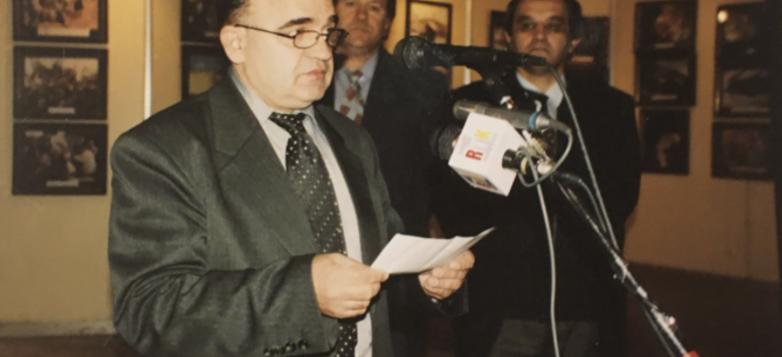The most important documents in Kosovo, the files as they call them, the files of personalities, they were at the Provincial Secretariat of Internal Affairs. They had a very extensive archive. I as an inspector got to go in there but couldn’t research because Serbs were working there. I got inside through connections. I saw thousands of documents, files. When I came back after the war I immediately went there. I didn’t find any of them. I asked, ‘Where are they?’ They said, ‘They were burned.’ When I went there, they weren’t burned because you can tell when a paper is burned, but they took them to Belgrade. The files from the archive. Because you have to be very careful to not disclose someone’s identity. You go and research, you find something against someone, but you can’t disclose that without 50 years passing, 50 years have to pass in order to publish a document of that nature.
Jusuf Osmani was born in 1948, in Sllatina e Madhe, Municipality of Fushë Kosova. He received his doctorate in 1986 in the field of archival science at the Faculty of Philosophy at the University of Ljubljana with the thesis: “Archival material for the agrarian reform and colonization of Kosovo 1918-1941.” He worked as a senior official in the Archives of Kosovo from 1973 to 1987. Then he was the director of the Archives of the City of Pristina from 1987 to 1989. And from 2002 to 2011, he was the director and chief executive officer of the State Archives of Kosovo. He is now retired and lives in Pristina.
